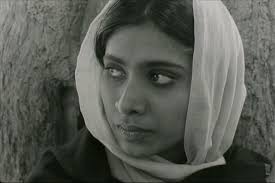 “The time has come
“The time has come
for confessing, how we
to each other are bound.
to wage battle of ideas
outside the mosquito net
and bear bare-faced
shame of each other’s regret”
-Pash
A week ahead of Labour Day, the city of Bangalore witnessed the naked rage of thousands of garment workers out on its streets. The sight was at once amazing, appalling, unexpected and confusing for a city sunk deep in the myths it likes to repeat – of progress, of opportunity, of world class potential. The angry disruption by the workers cracked the flashy glass through which the city liked to look at itself, insulated. For long now, they had been pushed into the obscure unseen labyrinth of the swanky metropolis, from where their quiet labour built our homes, stitched our clothes, ensured our food,cleaned our neighborhoods, and somehow kept the city going – mute and invisible. And then one day, they brought the city to a standstill with the visibility of their protest as intense as the invisibility of their labour.
This is the moment when we take off our blinkers and sit down to see, look, watch the unseen people and their essential labour – in all its awe, dignity, loss, absurdity, magic and frustration. We bring to you films about the sights, sounds and rhythms of labour. The cramped hostility and the vast desolation – these films throw a deadpan gaze at the threadbare fabric, body and the ideas of work and worker. Films that are not hesitant to spend a long time gazing, listening, and etching sustained images, sounds, and cinematic patterns of work. In factories, kitchens, and streets; with machines, firewood, and flags; in constant chase and drudging wait – every thread laid bare – for us to see… really see and feel the look of labour… no escape.
On May 1, Maraa brings to you a screening of films that capture the lives and times of workers. The first one will be Workers Leaving The Lumière Factory in Lyon (1895). Workers were the ‘heroes’ in this first film ever produced and projected in the history of cinema and a brief, pulsating image became an iconic one with several repetitions and offshoots.
You will also see Workers Leaving The Factory (1895), directed by Harun Farocki (36 mins). Taking off from the first ever film of Lumière brothers – the image of workers exiting the factory, Farocki rummages through the span of film history to find images similar and dissimilar, real and dramatized, evasive and sensational images of workers in and around the factory. This video treats the space right outside the factory and its images in cinema as a site of social conflict and explores why ‘most films begin when the work is over’.
Another film to be screened will be Useless (2007), directed by Jia Zhangke (84 mins).
With cloth, clothing and fabric as his pre-occupations, Zhangke paints three portraits of contemporary China. Sharp white lights, din of several sewing machines clanging away in a factory to produce garments that will be shipped away to unknown customers. An unconventional fashion designer creates a label called ‘Useless’ and attempts to bring clothing out of the assembly line and closer to nature and personal experience. A small time tailor in the mining area of Fenyang entertains the miners and repairs and alters their clothes.
Date: 1st of May, Sunday
Venue: Maraa Terrace, (Off 80 Feet Road, Indiranagar)
Address: No. 3, 4th Cross, Michaelpalya 2nd Stage, Bangalore – 560075 (We’re on the second floor of the Glasscrafters building – Google Maps link)
Time: 7 pm onwards
Contact: 9880159484 or 9845220282
Entry is free and all are welcome.
Threadbare | labour film festival
will continue over the coming weekends of May with:
Uski Roti (1969) | Dir: Mani Kaul | 110 mins
At Sea (2007) | Dir: Peter Hutton | 60 mins
The Factory (2015) | Dir: Rahul Roy | 132 mins
Taxi Tehran (2015) | Dir: Jafar Panahi | 82 mins
Watch this space for further details on date, venue and timings.
Text: Courtesy Maraa





